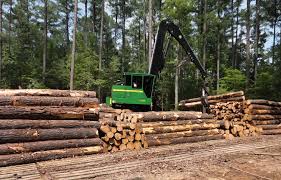Vermont is home to extensive forested areas, covering nearly three-quarters of the state. Maintaining these woodlands requires expertise, planning, and sustainable practices. Vermont County Foresters play a key role in guiding landowners and communities to manage forests responsibly while protecting ecological health and supporting local economies.
Role and Responsibilities of County Foresters
County foresters are professionals tasked with assisting landowners in forest management and conservation. Their responsibilities include:
-
Conducting forest health assessments and inventories
-
Advising on sustainable harvesting and reforestation
-
Protecting water quality and soil resources
-
Preserving wildlife habitats and biodiversity
-
Supporting compliance with state forestry regulations
Through these services, county foresters ensure forests are both productive and ecologically resilient.
Importance of Sustainable Forest Practices
Sustainable forestry is central to Vermont’s approach to forest management. Key principles promoted by county foresters include:
-
Selective harvesting: Carefully removing trees to maintain forest structure and diversity
-
Reforestation and natural regeneration: Ensuring continuity of forest cover
-
Habitat and biodiversity protection: Maintaining healthy ecosystems for wildlife
-
Soil and water conservation: Reducing erosion and safeguarding water resources
Implementing these practices helps forests remain resilient against environmental changes while providing long-term benefits.
Services Offered by Vermont County Foresters
County foresters provide a range of services to landowners and communities, including:
-
Forest management planning: Creating long-term strategies for sustainable use
-
Timber assessment and valuation: Evaluating wood resources for responsible harvests
-
Wildlife and habitat management: Maintaining ecosystems that support biodiversity
-
Conservation guidance: Assisting with easements and stewardship programs
-
Education and outreach: Informing landowners about best practices in forestry
These services allow landowners to make informed decisions that balance economic and ecological priorities.
Challenges in Vermont Forestry
Forests in Vermont face ongoing pressures, such as:
-
Land fragmentation: Development can reduce forest continuity and disrupt habitats
-
Climate change: Shifts in temperature and precipitation affect forest ecosystems
-
Invasive species: Non-native plants and pests threaten native trees and biodiversity
County foresters help identify these challenges and implement adaptive strategies to maintain forest health and resilience.
Benefits of Working with County Foresters
Engaging with county foresters offers multiple benefits:
-
Improved forest health and sustainability
-
Enhanced wildlife habitats and biodiversity
-
Responsible timber production and resource use
-
Compliance with forestry regulations and conservation standards
-
Long-term preservation of Vermont’s forests
By providing guidance and expertise, county foresters ensure forests remain productive, resilient, and ecologically balanced.
Conclusion
Vermont County Foresters are vital to the sustainable management of the state’s forests. Their expertise supports landowners and communities in protecting natural resources while promoting responsible use of forested areas. Through education, planning, and stewardship, county foresters help ensure Vermont’s forests continue to provide ecological, economic, and recreational benefits for generations to come.









